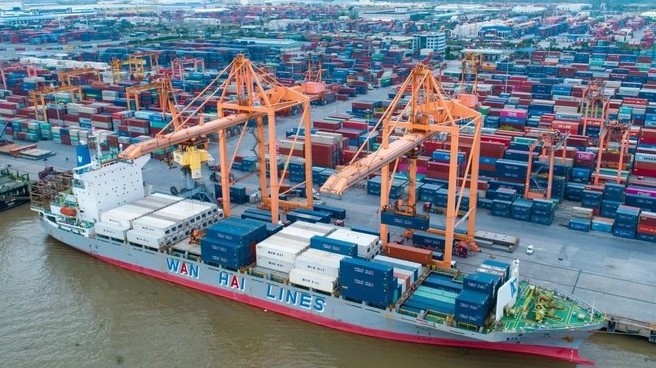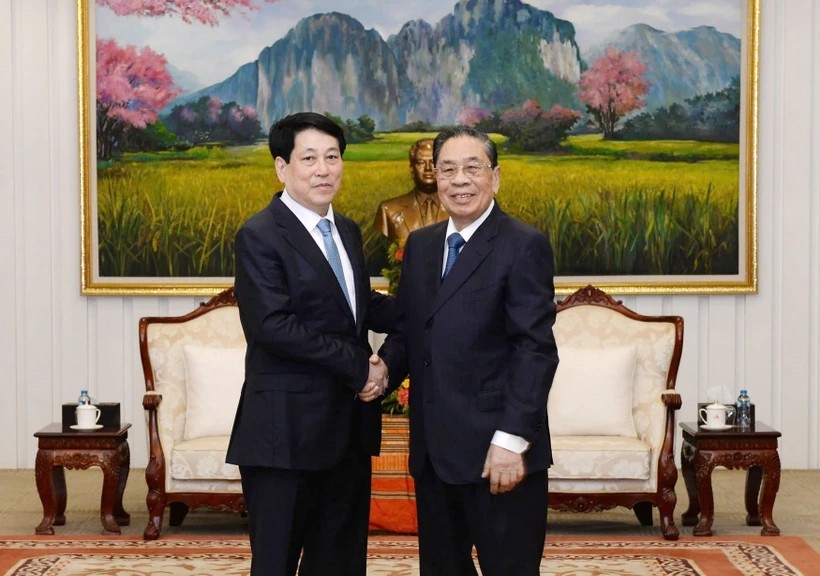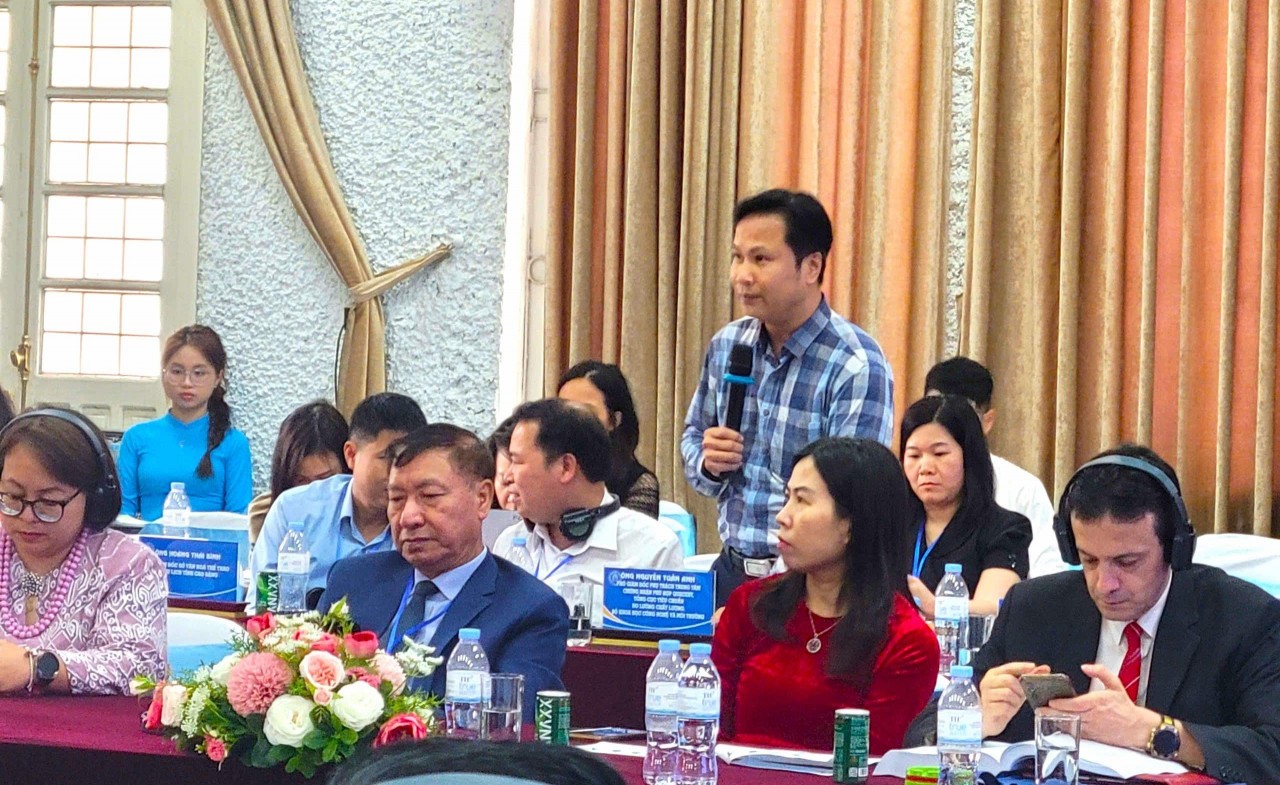The Role of Circular Economy in implementing Vietnam's Net Zero goal
Net zero emissions: from commitment to action
At COP26, Vietnam's commitment to bring net emissions to "zero" by 2050 sent a strong signal to the international community, opening up opportunities for Vietnam to take advantage of the shift in global financial resources for low-emission development, promoting circular economic development, and adapting to climate change.
Immediately after COP26, the Vietnamese Prime Minister established a National Steering Committee to implement Vietnam's commitments at the COP26 with himself as the Head of the Steering Committee. Relevant ministries and agencies have focused on developing strategies, programs, and action plans to implement the commitment.
To date, ministries have submitted to the Prime Minister to consider and approve the National Electricity Development Plan for 2021 - 2030, with a vision to 2045, the Project on tasks and solutions to implement the results of COP26, the National Strategy on Climate Change to 2050, the Action program on Green Energy Conversion and Reduction of Carbon and Methane Emissions from Transportation, the National Action Plan on Green Growth for 2021 - 2030, and the Action Plan to Reduce Methane Emissions to 2030. Many ministries and agencies have developed action plans in their sectors to implement the COP26 commitment.
Many ministries and sectors have signed cooperation agreements to implement COP26 commitment with the Korea International Cooperation Agency (KOICA), the Republic of Korea's Ministry of Environment, the Indian Ministry of Earth Sciences, the International Financial Organization (IFC), Citi Bank, and Bank for Investment and Development of Vietnam. They have promoted discussions with HSBC Bank and Standard Chartered on cooperation to implement COP26 commitments. Domestic and foreign financial institutions such as ADB, CitiBank, HSBC, SCB, BIDV, and IFC are also supporting Vietnam in implementing its commitment.
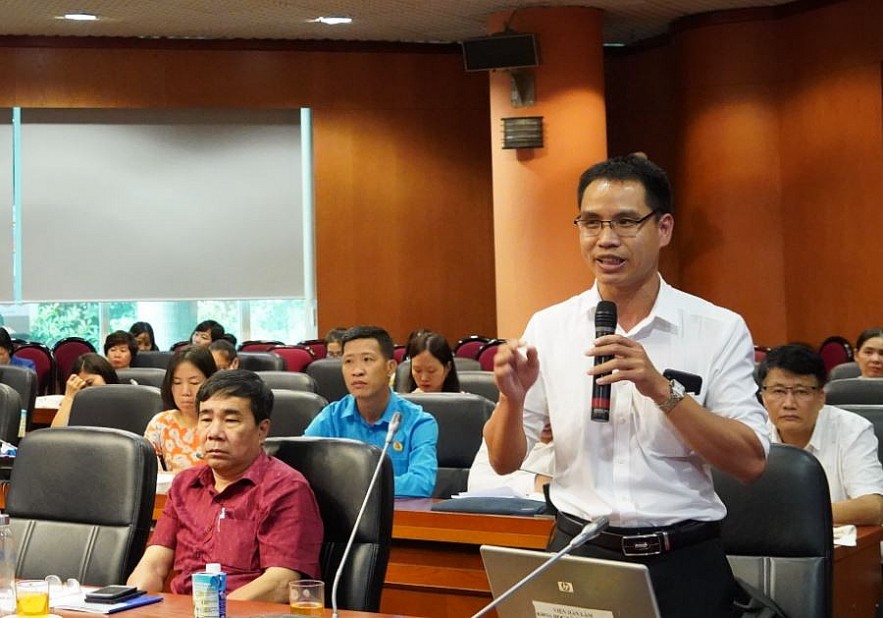 |
| Dr. Nguyen Dinh Dap, Institute of Human Geography, Vietnam Academy of Science and Technology (standing). |
Localities have been raising awareness of and implementing Vietnam's commitment through legal documents and instructions on environmental protection and response to climate change. They have been enhancing the capacity and awareness of staff while encouraging businesses, organizations, and residents to use green energy sources. They urge and guide establishments in the area to properly reduce greenhouse gas emissions.
State corporations have initially researched and gradually reduced fossil energy use. Domestic businesses and private corporations also responded immediately to the Government. Some multinational corporations are willing to cooperate with government agencies to achieve net zero emissions in their business operations.
Thus, only a short time after COP26, the Government, relevant ministries, and agencies have implemented many activities to implement the commitment, receiving support from agencies, domestic and international organizations, localities, and businesses. To implement Vietnam's committed goal at COP26, there needs to be high determination and effort. All resources have to be mobilized, the entire society and every citizen must join hands. At the same time, it is significant to connect and mobilize to attract international resources, green financial flows, technology transfer, knowledge, and experience from other countries and international organizations.
Role of circular economy in implementing the Net zero goal
At COP26, countries made strong commitments to reduce greenhouse gas emissions to achieve "net zero" by 2050, so that at the end of this century, the earth's temperature rise does not exceed 1.5 degrees Celsius. To do so, they put priority on converting from fossil to clean, renewable energy.
However, according to many international organizations, including the Ellen Macarthur Foundation, energy conversion, along with energy efficiency savings, only contributes 55% to that goal. The rest depends on circular economy solutions.
According to the Ellen Macarthur Foundation, the world can reduce emissions from construction materials by 38% by 2050 by eliminating waste in buildings and the construction process, sharing buildings, and recycling construction materials. Similarly, emissions from the food system could be halved by 2050 through circular practices in agriculture.
Therefore, applying the principles of eliminating waste and pollution, circulating products and materials, and regenerating nature in a circular economy model will help reduce greenhouse gas emissions in industry and agriculture. Reducing and eliminating waste and pollution will reduce greenhouse gas emissions throughout the value chain by circulating and capturing energy contained in products and materials, and nourishing nature to sequester and capture carbon.
A circular economy contributes to reducing risks for businesses in the overproduction and resource scarcity crisis. Thereby, it creates motivation for investment, technological innovation, production cost reduction, and supply chain stimulation.
Society will benefit from reduced costs in management, environmental protection, and response to climate change. Thereby, new markets and new job opportunities will be created and residents' health will be improved.
However, the transition from a linear model to a circular economy will initially encounter certain difficulties, given that Vietnam has a shortage of resources and technology to recycle and reuse.
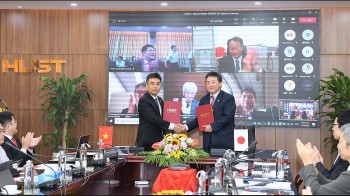 | JICA Helps Vietnam Realize Net Zero Emission Commitment The Japan International Cooperation Agency (JICA) and the Japan Science and Technology (JST) in cooperation with the Hanoi University of Science and Technology (HUST) and ... |
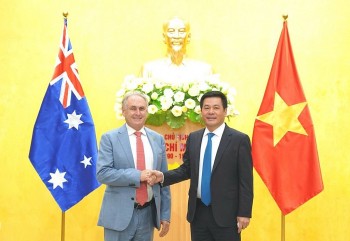 | Vietnam - Australia Share Commitment to Net Zero Emissions by 2050 Vietnam and Australia share a commitment to net zero emissions by 2050 and emphasize the importance of a timely transition to clean energy. |
 | Vietnam Pledges to Realize Commitments At COP26 Vietnam is actively implementing international commitments, especially commitments since the 26th United Nations (UN) Climate Change Conference of the Parties (COP26). |




